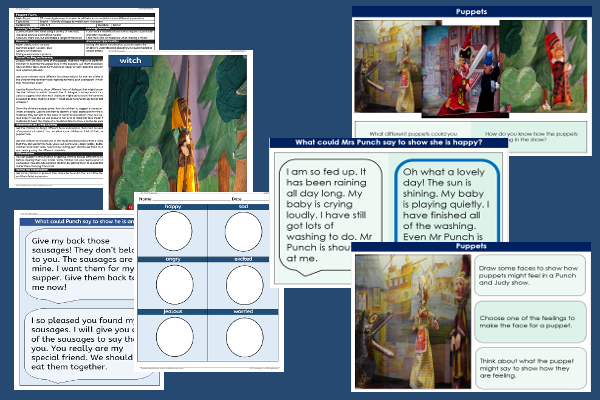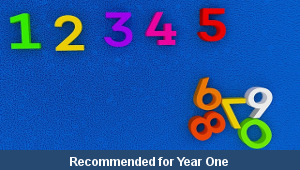Lesson Three – Puppet Faces

This design technology teaching pack for Key Stage One gets the children to investigate and record some of the special ways of creating facial features on puppet models to show different expressions and emotions.
The class can suggest and illustrate how puppets might make facial expressions when saying different lines as part of a performance from a scene of a narrative story.
Download this teaching pack including a lesson plan, classroom activities and an interactive presentation to investigate and record some of the special ways of creating facial features on puppet models to show different expressions and emotions
Activities in this teaching pack include display posters to describe facial features used on models to show different expressions, a shared reading text to identify emotions that can be shown through different dialogue sentences and a worksheet to select and record facial expressions that can be used on a puppet to illustrate emotions.
The interactive presentation can be used to explore and record special ways of creating facial features on models to show different expressions and emotions.
This lesson is part of a design technology scheme of work to get the children to select, shape and combine textile and other materials to make a range of puppet characters that can be used to narrate a traditional story. There are teaching activities for shared learning, differentiated worksheets to support independent learning and interactive presentations to introduce concepts and key skills.
-

Word Matching
Identify, match and record the initial sounds that have been used in a range of cvc words beginning with different letters
-

Family Toys
Investigate and record how a selection of different toys and games that were owned by families have changed and developed over time
-

Subtraction Digits
Model and illustrate how to subtract pairs of single digit numbers within ten using concrete equipment and diagrams to support the subtraction calculations
-

Family Experiences
Practise composing and presenting some example stories with familiar settings to illustrate things that might be experienced by a family
